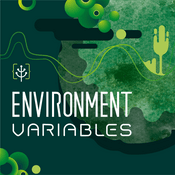This Week in Green Software, Chris Adams is joined by new co-hosts Kate Goldenring and Tzviya Siegman to explore the latest stories on their radars. They unpack Microsoft’s community-first AI infrastructure pledge, the rise of gas-powered data centers, and the hidden embodied emissions behind AI models and storage hardware. The conversation also dives into the energy cost of AI prompts, new research measuring real browser energy use, and emerging models like billing AI by the kilowatt-hour. Together, they examine how transparency, standards, and smarter engineering decisions can shape a more sustainable digital future.
Learn more about our people:
Chris Adams: LinkedIn | GitHub | Website
Kate Goldenring: LinkedIn | Website
Tzviya Siegman: LinkedIn | Website
Find out more about the GSF:
The Green Software Foundation Website
Sign up to the Green Software Foundation Newsletter
News:
Building Community-First AI Infrastructure - Microsoft [05:00]
Microsoft Pledged to Save Water in the A.I. Era - The New York Times [08:29]
Building Community-First AI Infrastructure - Microsoft On the Issues
Betting big on data centers, U.S. now leads world for new gas power development - Global Energy Monitor [13:56]
The Robles v. Domino’s Settlement (And Why It Matters) [21:56]
From FLOPs to Footprints: The Resource Cost of Artificial Intelligence [23:53]
The Cost of Politeness in AI [29:54]
Green Coding Solutions: webNRG Released [36:50]
Energy-Aware Hosted Inference | Neuralwatt Portal [42:35]
Resources:
Environment Variables Ep 62: Greening Serverless w/ Kate Goldenring [11:24]
Environment Variables Ep 104: OCP, Wooden Datacentres and Cleaning up Datacentre Diesel w/ Karl Rabe [12:16]
GitHub - Green-Software-Foundation/real-time-cloud: Real Time Energy and Carbon Standards for Cloud Providers [14:56]
Web Sustainability Guidelines | W3C [20:14]
WCAG 2 Overview | Web Accessibility Initiative (WAI) | W3C [21:00]
Software Carbon Intensity (SCI) Specification | GSF [23:22]
Ecoinvent [27:06]
Solar power in Finland - Energy [44:38]
On using solar & batteries to provide 90% of the world population with 90% of their electricity demand for below 90 €/MWh | Chris Adams
Solar and batteries can power the world
How Did This State Become the Data Center Capital of the World?
Subsidizing the Cloud: U.S. State Incentives to Data Centers
Scope True - Reality-Based Corporate Carbon Accounting For the Decarbonization
webNRG
GitHub - webNRG
If you enjoyed this episode then please either:
Follow, rate, and review on Apple Podcasts
Follow and rate on Spotify
Watch our videos on The Green Software Foundation YouTube Channel!
Connect with us on Twitter, Github and LinkedIn!
Hosted on Acast. See acast.com/privacy for more information.



